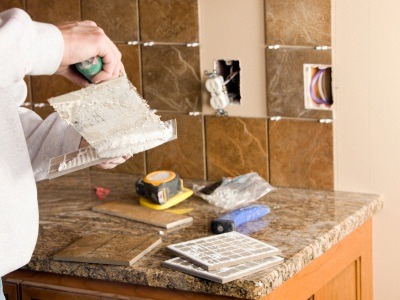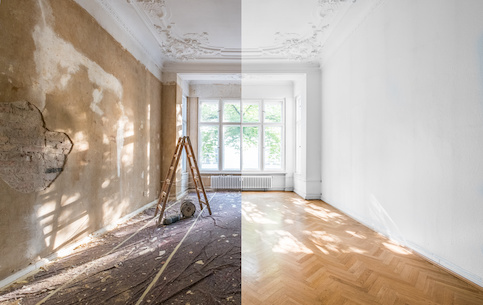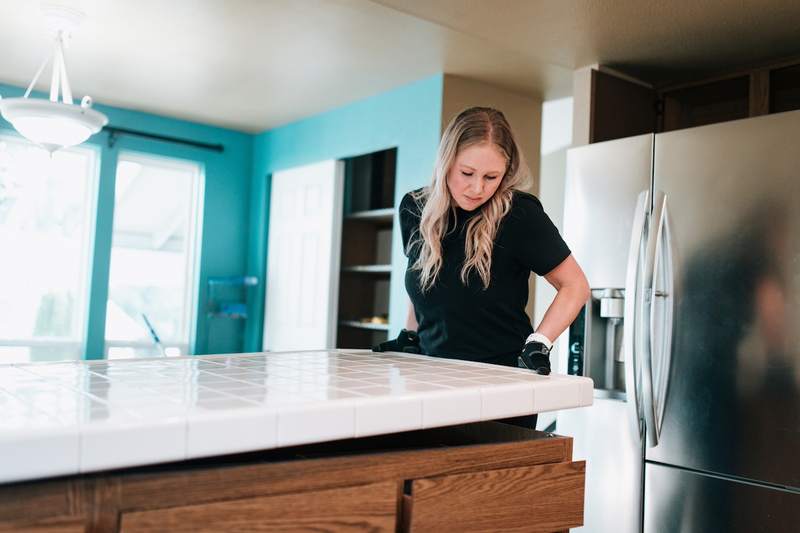Occasionally, we get a question about betterments and home value: What is a betterment and how does it differ from normal improvements to a home or property? We’re more than happy to answer.
What Does Betterment Mean In Real Estate?
Betterment is when you improve a fixed asset to increase its worth. Simply put, if it makes your property more valuable (or better), it’s a betterment. Painting your home isn’t a betterment because it sustains your home’s value but doesn’t increase it. But a new addition to your home does increase its value, which makes it a betterment.
See What You Qualify For
Buy A Home
Discover mortgage options that fit your unique financial needs.

Refinance
Refinance your mortgage to have more money for what matters.
Tap Into Equity
Use your home’s equity and unlock cash to achieve your goals.
How Does A Betterment Affect The Sale Of Your Home?
The way a betterment impacts your home depends on how you finance the improvement. Financing it yourself is slightly different than if you take a loan. However, the principle is going to be the same. The value of your betterment financially is going to be lessened by the amount you have to pay to finance it.
Betterment can be a lien, which means it’s a debt against the property. It can impact the sale of your home because you must pay the cost of the improvements added to the house before you can sell the property. All liens have to be cleared from a property; otherwise, there’s a limit on what the owner can do with it.
This is the case if a lien is put on by a contractor, for example. These are usually removed as soon as the contractor is paid for the work.
View Your Refinancing Options
See recommended refinance options and customize them to fit your budget.
The Types Of Betterments
There are two kinds of betterments: public betterments (or projects by a government that raise the value of your home) and private betterments (home improvements that increase your home’s value). This is important because property owners often have little or no say in public betterments, but both can impact your tax bill.
Public Betterments
Public betterments are public projects that could raise the value of your home. Here are some examples of common public betterments:
- New roads (but not the repaving of old roads)
- New parks close to a property
- City water and sewerage added (to a property with a well and/or septic system)
- New neighborhood school
- Upgrading of sidewalks
Here’s one thing to keep in mind: Public betterments often come with a property tax increase. Public betterments increase the value of the property and therefore you are taxed accordingly.
The City of Boston has some great, easy-to-understand information about how public betterments affect your tax bill:
“Whenever a person is part of community that benefits from a public improvement, or betterment (e.g., water, sewer, sidewalks, etc.), special property taxes may be assessed to the property owners of that area to reimburse the governmental entity for all, or part, of the costs it incurred in completing the project. Each property parcel receiving the benefit is assessed a proportionate share of the cost which may be paid in full, or apportioned over a period of up to 20 years.”
Getting in touch with your assessor’s office is recommended if you disagree with any tax increases or if you’re curious how a currently-planned betterment will affect your future taxes.
Private Betterments
When it comes to private betterments, often the value increase would be apparent if the home is sold or appraised for a refinance. Some capital improvements raise the value of a home and some don’t (or raise it very little).
To get a perspective on betterments as they relate to property value, we checked with Mike Brocker-Querio, a staff appraiser at Amrock, for his opinion. Here’s what he had to say:
“It’s important to note that just because a new kitchen may cost $30,000, it may not increase the value of the home by $30,000. Items like replacing a roof or new furnace will increase the marketability of a home, but the increase in value is minimal if you replacing with like materials. For example, if you replace a composite shingle roof with new composite shingles, your increase in value is very minimal because all homes are expected to have a roof.”
Brocker-Querio also gave a great list of common improvements and how they affect your property value. Here are some improvements that typically increase your property value:
- Remodeling your kitchen
- Remodeling your bathroom
Here are some improvements that typically have a moderate return on investment:
- Installing new flooring such as tile and hardwoods (but not carpet)
- Installing new patios and decking in outdoor spaces
- Finishing a basement
These items have a minimal return on investment:
- Adding new paint (including custom murals)
- Installing a swimming pool
You should note that these are general rules, and “the items may vary according to your location,” says Brocker-Querio.
When you’re improving your property, you should also consider what’s expected in your local market. Here’s what Mike Brocker-Querio had to say on the matter: “If custom-made Italian cabinetry isn’t the norm for the market, don’t spend the money on it if you expect to get a return on investment. There is such a thing as over-improving your home.”
Who Pays For A Betterment And When Is It Due?
When I say private betterment, the homeowner pays for upfront with the idea that they’ll realize the value when they sell or refinance the property. In most cases, the city typically requires you to pay your betterment charges within a year if it’s a special assessment based on something like connecting your property to the local sewer system. However, sometimes they offer monthly installments if you don’t have the money upfront but can pay it back over time.
Other times, it’s included in your property taxes.
The Bottom Line
When you add betterment, it can enhance and improve the worth of a property. It is important to remember that added improvements don’t always raise the property value and that the value amount doesn’t necessarily equal the cost you paid.
Interested in learning more? Read our article on upgrades to increase your home’s value.
See What You Qualify For
You can get a real, customizable mortgage solution based on your unique financial situation.

Victoria Araj
Victoria Araj is a Staff Writer for Rocket Companies who has held roles in mortgage banking, public relations and more in her 15-plus years of experience. She has a bachelor’s degree in journalism with an emphasis in political science from Michigan State University, and a master’s degree in public administration from the University of Michigan.












